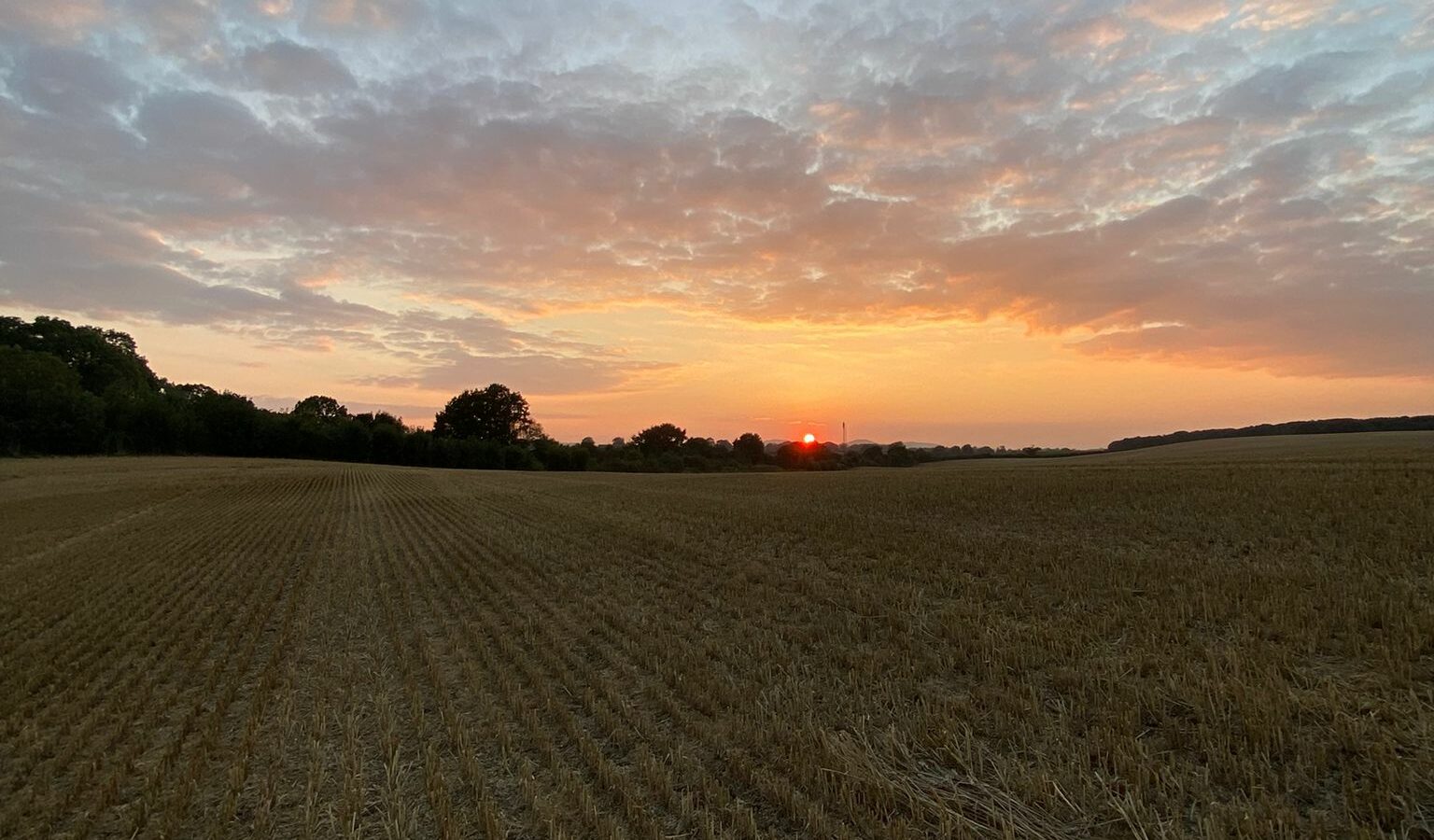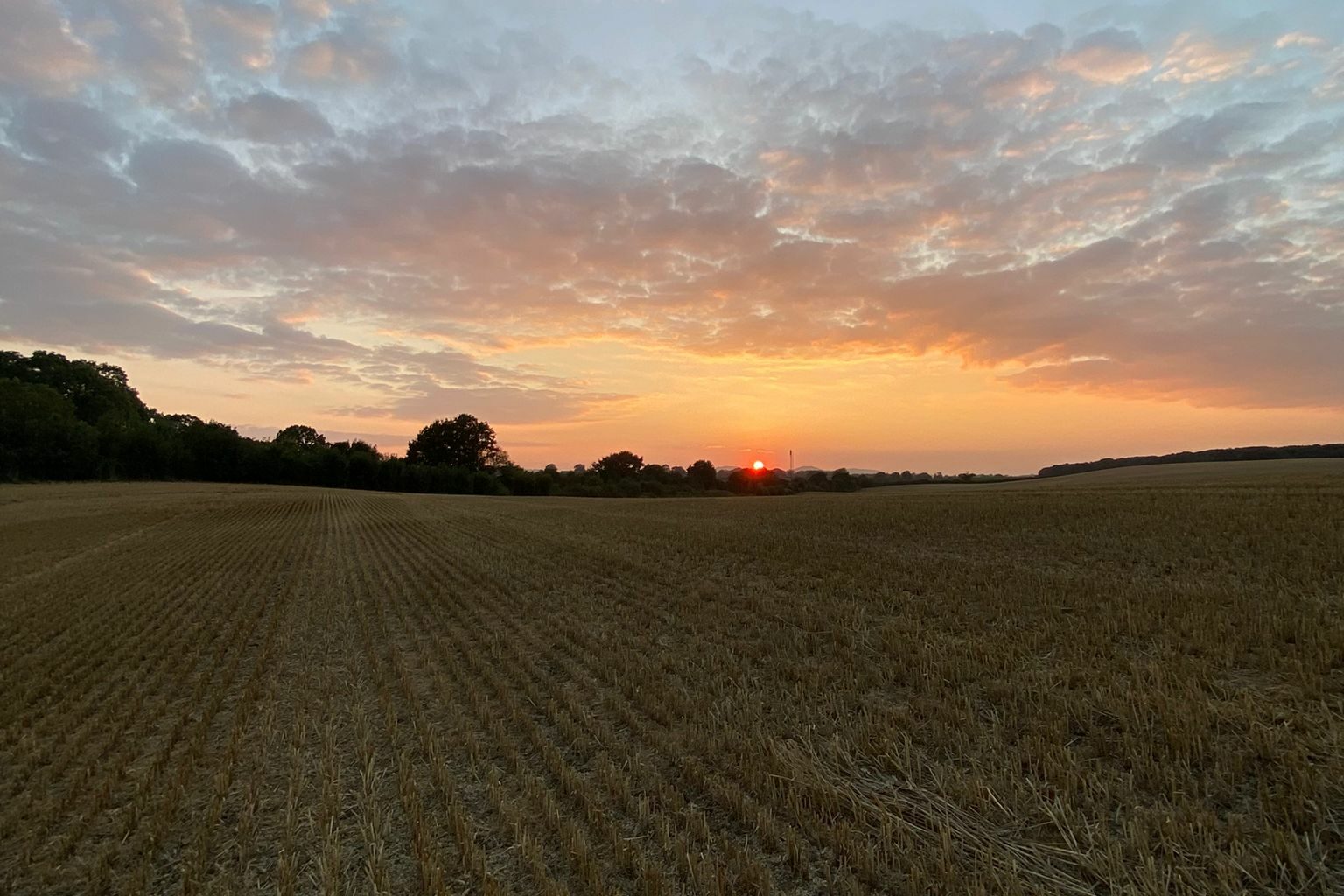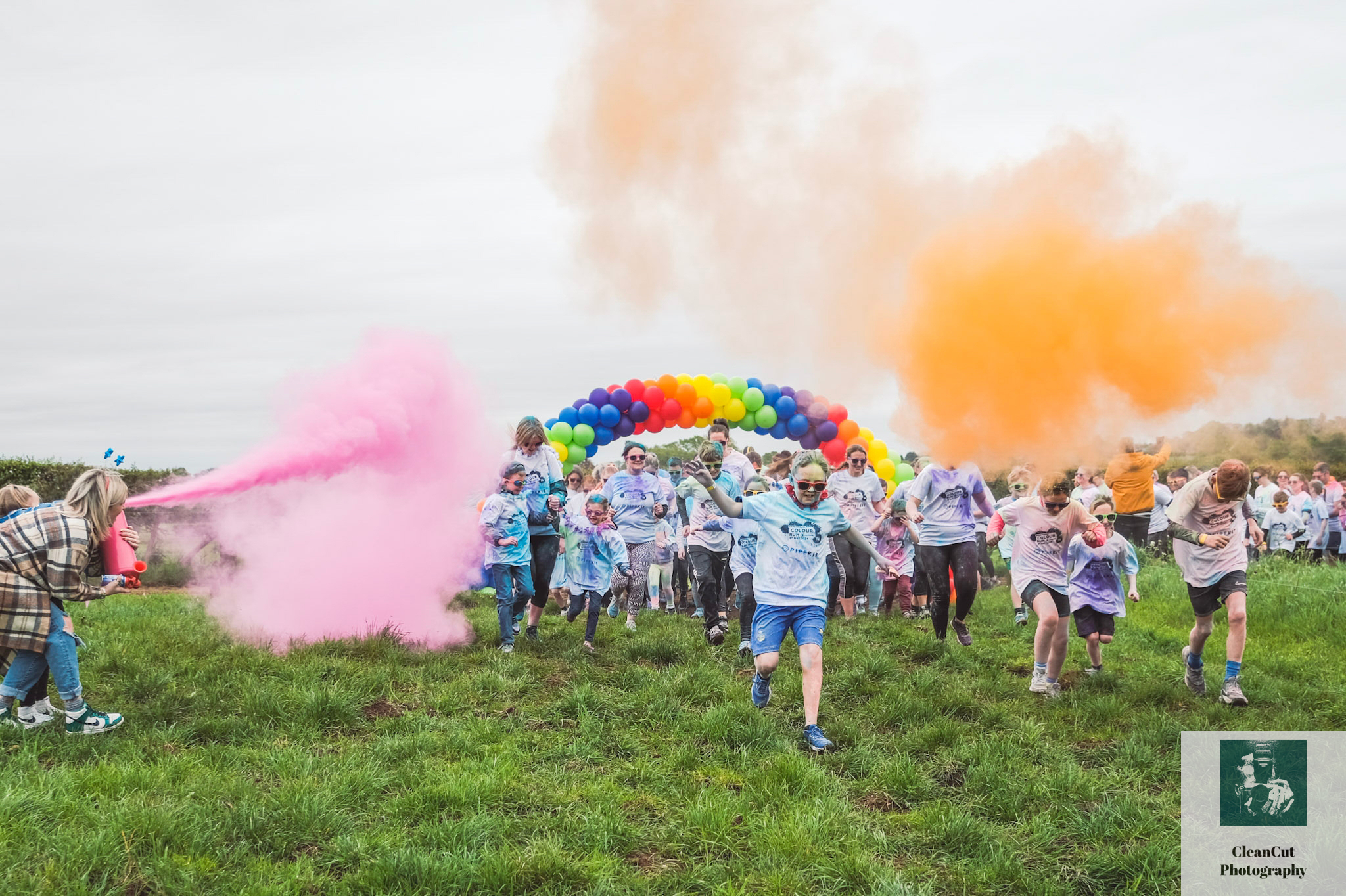Justine's Story
Justine attended her first routine mammogram which was clear but two years later in September 2023 she found a lump in her left breast. She phoned the GP straight away to get it checked – and was given her diagnosis.

Justine, 53, is a retired nurse from Shropshire. Two years after her first routine mammogram, which was all clear she noticed a ‘weird sensation like bubbling or tingling” in her breast. But she says it wasn’t something that made her think she needed to get anything checked as she presumed that she was probably perimenopausal and that this was a symptom.
But one day, whilst showering she noticed that there was a lump – it hadn’t been there the day before, but she could feel it immediately.
She phoned the GP straight away to get it checked quickly and an immediate referral was made to the Princess Royal Hospital breast clinic.
“I was feeling very anxious,” says Justine. “My husband came with me to the clinic appointment where I saw a breast consultant who on examination thought the lump was likely a cyst.
“I had a mammogram and an ultra-sound scan, which included a core biopsy. I then saw a breast cancer specialist nurse who confirmed that it was breast cancer, but until the biopsy results were back, they didn’t yet know what type, grade or stage it was. I was told I would need surgery, a lumpectomy, where the surgeon saves as much of the breast as possible. I was very upset, but the nurse was so kind and empathetic and she informed me that my full results would be back in about a fortnight.
“I was at the clinic for around two hours in total and felt relieved that the diagnostic process was all done during this visit,” she added.
Justine says the two weeks between getting the results and going back to see the surgeon felt like “torture.”
She worried if the cancer had spread, and was concerned about telling her two teenage girls, so she had many sleepless nights. “It is like your worst nightmare,” says Justine. “It feels like your world has fallen apart. Our house was on the market at the time so we immediately took it off. Life went on hold. You are filled with terror, fear and dread. It was massive for me.”
The Breast Cancer Nurse had told Justine about Macmillan and the Hamar Centre that offer support to cancer patients and their families.
Justine also looked at a lot of websites for more information and found the charity Breast Cancer Now provided accurate and trusted information, advice and support. A mutual friend introduced her to a fellow breast cancer patient and Justine says that has blossomed into a “very beautiful friendship, that offers support and understanding.”
Justine went back to the consultant surgeon in Telford to get her results and it was explained that her cancer was HER 2 +. She was told she needed surgery, 6-8 rounds of chemotherapy and then radiotherapy.
“My husband was brilliant and was asking all the relevant questions, but it just wasn’t going in for me, as I felt like I was in total shock as chemotherapy just wasn’t on my agenda.
“In that moment I felt like I was wearing earmuffs and was blindfolded and that I just wanted to crawl under the couch. I was in panic mode and it felt terrifying, that was followed by numbness really. I was thinking how would I tell my children?
“I was told that my surgery would be in four weeks’ time. I was dreading telling my girls and family, as I didn’t want them all to worry, but knew that I had to. My husband and I explained the facts to our girls and they have taken everything one stage at a time and have been amazing”.

Justine was booked to have the surgery at the Princess Royal Hospital in Telford and at this point she still didn’t know if the cancer had spread. She was informed at her pre-op appointment that she would be having an injection into the breast prior to surgery which stains the lymph nodes and helps the surgeon see where the cancer is.
“I was feeling extremely anxious about the surgery and was really frightened that the cancer might have already spread.” The surgery went well and Justine woke up in recovery and was then later discharged from the ward that same day. “ I felt sore and was very bruised, but relieved that the operation was over.” Two weeks after surgery, Justine returned to the breast clinic and was told that it hadn’t spread to her lymph nodes, she didn’t need any MRI or CT other scans. She was “very, very relieved.”
There were a few more weeks to physically heal before Justine then had to start chemotherapy.
“I met with my oncologist who discussed my treatment plan with me and explained that I would need a total of six cycles of chemo, given every three weeks. I tried to remind myself that chemo would hopefully give me the best outcome and kill any potential remaining cancer cells.
“However, I was still really scared of chemo and how poorly and vulnerable it might make me feel. I spoke with my friend who had already been through chemo and was reassured by her that I would be okay. I also I watched a recording of what I could expect from the experience at Lingen Davies.”
“The nurses on the chemo day ward at Lingen Davies are absolutely fantastic. They’re highly skilled and very caring and they reassured me that I would be well looked after. I remember sitting in the chair and staring at the canula, waiting for my first chemo. My husband was allowed with me for my first chemo; but for subsequent ones I was on my own as visitors can potentially increase the risk of infection to already very vulnerable patients.
“The first drug was bright red, and I remember watching it thinking “I’m having chemo and I am going to lose all my hair.” You get a real reality check, and you look around at of all the other patients and you know everyone is having chemo and you feel a bit sorry for each other.
“The first chemo drug left an odd metallic taste. I was offered cups of tea and biscuits and I was made to feel very comfortable. Then I had the next drug and then home you go. I got used to going to the chemo ward for my regular treatment chatted with the staff, watched stuff on my ipad and listened to music.
“You are taking so many drugs before you have chemo and injections that causes back, pelvic, rib and shoulder pain. I found the first few days to be okay and then days five and six were my worst days when I would cry and be in pain. I would be in bed and sleep a lot too and I had a TV for the bedroom so I could binge on everything that I never had time to watch before!”
“The biggest things for me were not being able to do as many activities with my daughters as I previously did, and that I didn’t have the energy to walk our dogs as far as I could before. Luckily though, my husband had just retired and was going to take a year out and help look after me and our family. He was just amazing,” she added.
On Christmas Eve Justine’s husband and daughter had a nasty cold. Justine started to feel unwell and developed a temperature and a sore throat. “Even a simple infection can potentially cause serious illness, so as all chemo patients are advised, I called the chemo helpline at 6pm for some medical advice.” Justine spoke with a very helpful practitioner who arranged for her to go to one of the wards at the Royal Shrewsbury Hospital where she was seen really swiftly. Within four hours she’d had blood tests, X-rays and was given antibiotics and was then able to go home. Justine says that her treatment was “amazing.”
Christmas day went ahead as planned and her family had a lovely Christmas.

Justine started gently pulling at her hair to see if it was going to come out and on 30th December, she found her hair was by now coming out in clumps. On January 2nd she decided to have her friend shave her hair off. “It felt empowering,” said Justine.
“Amy Dowden from Strictly Come Dancing was going through the same thing and had appeared on the show with a shaven head and looked fantastic, so I thought if she can be brave enough to do this, I can too.
“It was winter time and despite losing my hair, I didn’t feel too self-conscious as lots of people were wearing hats and wooly scarves too. In between chemo treatment, my ‘good’ week was week three and I would go out with my family and visit cafes to feel connected to people in the wider community. I knew I was vulnerable, but I needed to get out to feel a bit more like myself.
“As the chemo cycles went on, I got more side effects. I gained weight on the steroids, had ‘chemo belly’ feeling bloated and had mouth ulcers, chemo makes you ache – it caused me to have shooting and electrifying pains in my nerves and joints, hot and swollen feet and ridges across your nails. There were visual reminders all the time,” she added.
Justine had chemotherapy from December 2023 until April 2024. A friend and ex colleague that she used to work with at the hospital gave her, her final chemo. “I felt relieved that my chemo was finally over and that this stage of my treatment was complete.
Justine says she felt that coming to terms with her diagnosis and the challenges that chemo brings both physically and mentally had affected her and during treatment she accessed the counselling services provided by the Hamar Centre and found this to be very helpful.
There was a two-week break after chemo and then Justine started radiotherapy treatment. Justine says she is “extremely claustrophobic” so found the CT planning scan very difficult.
She added that “the staff were extremely understanding and very patient and I didn’t feel rushed at all. On day 1 of radiotherapy I couldn’t handle the machine being so close to my face. They gave me a sedative and I came back later, and we tried again. It was then no problem. The machine moves around you. I had a total of nine days of radiotherapy.
“The radiology staff were brilliant every day and they all looked after me so well. They really took my claustrophobia issues on board and found solutions to everything.”
During the Christmas period and at time of my diagnosis Justine was given a bag of goodies with little gifts in from Lingen Davies and says it really gave her a lift. She was “overwhelmed with the generosity and kindness of people.”
The drug she is now on that will hopefully prevent the cancer from returning is Herceptin. “I come to the chemo ward to get it every three weeks,” she explains.
Justine finished her 18th round of the drug on Valentine’s Day 2025. One of the side effects of the drug can be heart failure so she has an echocardiogram every four months to check her heart function. She will now have yearly mammograms.
In September 2024, a year after her cancer diagnosis she had a mammogram. The Breast Cancer nurse called and said that they had seen something in the scar line, but they weren’t sure what it was, and she needed to have a biopsy.
Justine did just that, and it took two weeks for the results to come through and she was told the brilliant news that there was nothing to worry about, as it was just scar tissue from the surgery.
“From September 2024, as far as I am aware, I do not have cancer,” she said.
“I am overwhelmingly grateful and thankful to everyone at the Lingen Davies Centre, they are without exception a very special group of individuals that work together as a team to provide outstanding patient care.
“I wouldn’t have gotten through my cancer journey without the support my fantastic family and friends. It’s such an intrusive thing to happen mentally and physically – you try and maintain your dignity, but cancer does strip you of many, many things.
“We will put our house back on the market in Spring because we are ‘moving on’….literally and metaphorically! I am very much looking forward to the future.”
Justine will have a mammogram every year for five years, then return to the national three yearly breast screening program.
“After a breast cancer diagnosis, you have open access to the breast cancer services forever at the Princess Royal Hospital. I had a niggle and I went in and they totally reassured me. I feel lucky. Cancer has become my barometer – to me, nothing is as bad as cancer.
“My family and friends took part in the Lingen Davies Colour Run fundraising event and I went along and really enjoyed the atmosphere of the event. Without the fundraising of Lingen Davies, a lot of the support you get can’t happen. I want to give something back, so I will continue to support the Lingen Davies fundraisers.”
